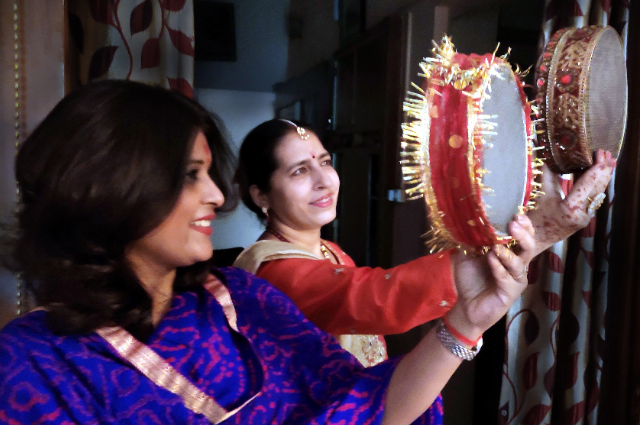Karwa Chauth, a traditional Hindu festival, is celebrated by married women with great fervor and devotion. The festival holds a special place in the hearts of couples, symbolizing love, commitment, and the strength of marital bonds. This article delves into the meaning, rituals, and cultural aspects of Karwa Chauth and explains why it remains an enduring tradition.
Meaning of Karwa Chauth:
Karwa Chauth is mainly observed in North India, where married women fast from sunrise to moonrise for the well-being and longevity of their husbands. The fast is broken only after the sighting of the moon and the performance of specific rituals. The word "Karwa" refers to the clay pot used during Puja, while "Chauth" refers to the fourth day after the full moon in the Hindu month of Kartika.
The roots of the festival can be traced back to ancient Indian mythology. Legend has it that Queen Veeravati, a devoted wife, observed a strict fast on Karwa Chauth for the welfare of her husband. However, due to her extreme hunger and weakness, she passed out. Hearing this, Lord Shiva and Parvati appeared before her and Lord Shiva explained the meaning of fasting. Moved by her devotion, Queen Veeravati's husband was given a longer life.
Rituals and Traditions:
The day begins with women waking up before sunrise to consume the pre-dawn meal known as 'Sargi', which includes fruits, sweets, and other auspicious things. Fasting begins immediately after this meal and continues throughout the day. Married women avoid consuming food and water until moonrise when they break their fast after seeing the moon through a sieve.
As the day progresses, women gather for a special ceremony, the 'Karwa Chauth Puja', which involves decorating an earthen pot (Karwa) with vermilion, rice, and other offerings. Married women gather in groups, dressed in colorful traditional attire, to perform the puja. The fast is broken by looking at the moon through a sieve, followed by offering water to the moon and seeking blessings for the long and prosperous lives of their spouses.
Cultural Significance:
Karwa Chauth is more than just a religious observance; it has deep cultural significance. The festival not only strengthens the bond between husband and wife but also promotes a sense of belonging among married women. Shared celebration, shared rituals and mutual support create a unique camaraderie between participants.
The intricate Mehendi designs adorning the hands of married women during Karwa Chauth add another layer of cultural richness to the festivities. Often depicting symbols of love and marriage, these designs are a visual representation of the joy and commitment associated with the festival.
Changing traditions:
While the essence of Karwa Chauth remains constant, the way it is celebrated has evolved over time. Modernity has brought changes in the rituals and the way women observe the fast. Nowadays, women are involved in group activities, organizing events and gatherings that go beyond the traditional puja. Social media platforms also play a role in connecting women during this festival, allowing them to share their experiences and festive preparations.
Additionally, there has been a shift in perception of Karwa Chauth, with some seeing it as a celebration of love and commitment, while others criticize it as a patriarchal tradition reinforcing gender roles. Despite such debates, the festival continues to thrive, adapting to changing times while maintaining its core values.
Challenges and Criticism:
Karwa Chauth has faced criticism for being a patriarchal tradition that puts the onus of fasting on women alone. Opponents argue that fasting for a husband's longevity reinforces traditional gender roles and promotes an unequal division of marital responsibilities. However, supporters of the festival say it is a personal choice and a way for women to express their love and commitment.
Conclusion:
In conclusion, Karwa Chauth represents a beautiful blend of tradition, culture, and love. It is a day when married couples come together to celebrate the sacred bond of marriage. Although the festival has evolved over time, its core values of love, devotion, and commitment remain steadfast. Whether seen as a religious festival, a cultural celebration, or a personal decision, Karwa Chauth continues to weave its magic, symbolizing the enduring strength of marital bonds in the tapestry of Indian traditions.

